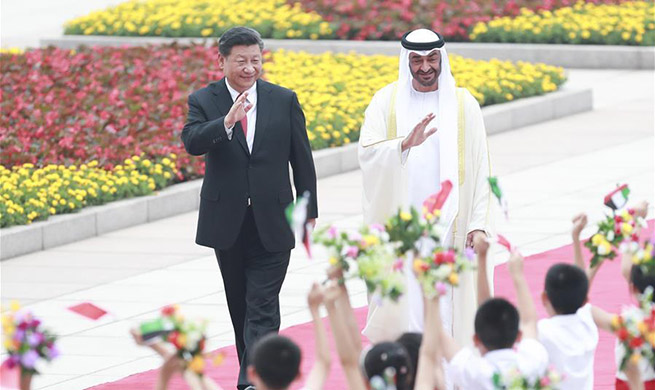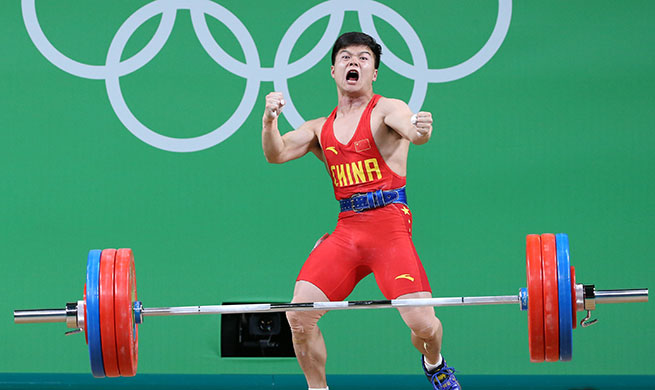BEIJING, July 23 (Xinhua) -- China's economy has moved a step forward in its quest for external rebalancing as its current account surplus plunged from more than 10 percent of GDP in 2007 to 0.4 percent in 2018.
The substantial decline can be attributed to shrinking trade balance driven by high import volume growth and a continued increase in the services deficit, mostly driven by tourism, as well as higher commodity and semiconductor prices, according to a report released by International Monetary Fund (IMF).
Sun Xuegong, director of the Institute of Economic Research of the National Development and Reform Commission, said the reduction means the economy has become more reliant on domestic demand, rather than external factors.
"The figures reflect that dividends of China's economic development have been mostly consumed at home and people's welfare was taken to new heights," Sun said.
According to data from the National Bureau of Statistics, China's consumption contributed 76.2 percent to GDP growth in 2018, up significantly by 18.6 percentage points from a year ago.
Retail sales, a gauge of consumption, rose 9 percent from one year earlier in 2018 while the number of domestic trips and tourism revenue in 2018 both went up more than 10 percent.
The outbound tourist surge in recent years, on the other hand, is another indication of improved livelihood, Sun said.
As the world's largest source of outbound tourists for five consecutive years, China's outbound travelers contributed nearly one-fifth of the 1.34-trillion-dollar international tourism revenue in 2017, according to the United Nations World Tourism Organization.
While consumption is taking the lead in driving the growth, exports' role is tapering off.
China's exports rose 7.1 percent year on year to 16.42 trillion yuan in 2018, and imports grew 12.9 percent to 14.09 trillion yuan, resulting in a trade surplus of 2.33 trillion yuan, which narrowed by 18.3 percent.
"In an overall perspective, the current account surplus decline is conducive to the stability of the macroeconomy as a more domestic-demand-driven economy has fewer fluctuations and therefore more control over the whole picture," Sun said.
The IMF expected the current account surplus to gradually decline further over the next few years, in line with China's continued rebalancing.
However, it remains important to ensure that rebalancing in China continues in order to avoid a return of excessive current account surpluses, the IMF report said.
Saying the continued narrowing on China's current account surplus a "noteworthy development," chief economist for the IMF Gita Gopinath said countries which run large current account surpluses may be saving too much and therefore be detrimental to global demand.
Therefore, Gopinath said it is important for China to continue its pivot toward more domestic-demand-driven growth to ensure that there is less reliance on credit-boom-driven growth and work on encouraging the private sector.
Instead of resorting to distortive trade actions, the economist also called on countries to work jointly toward reviving liberalization efforts and strengthening the rule-based multilateral trade system that has served the global economy well over the past 75 years.

















